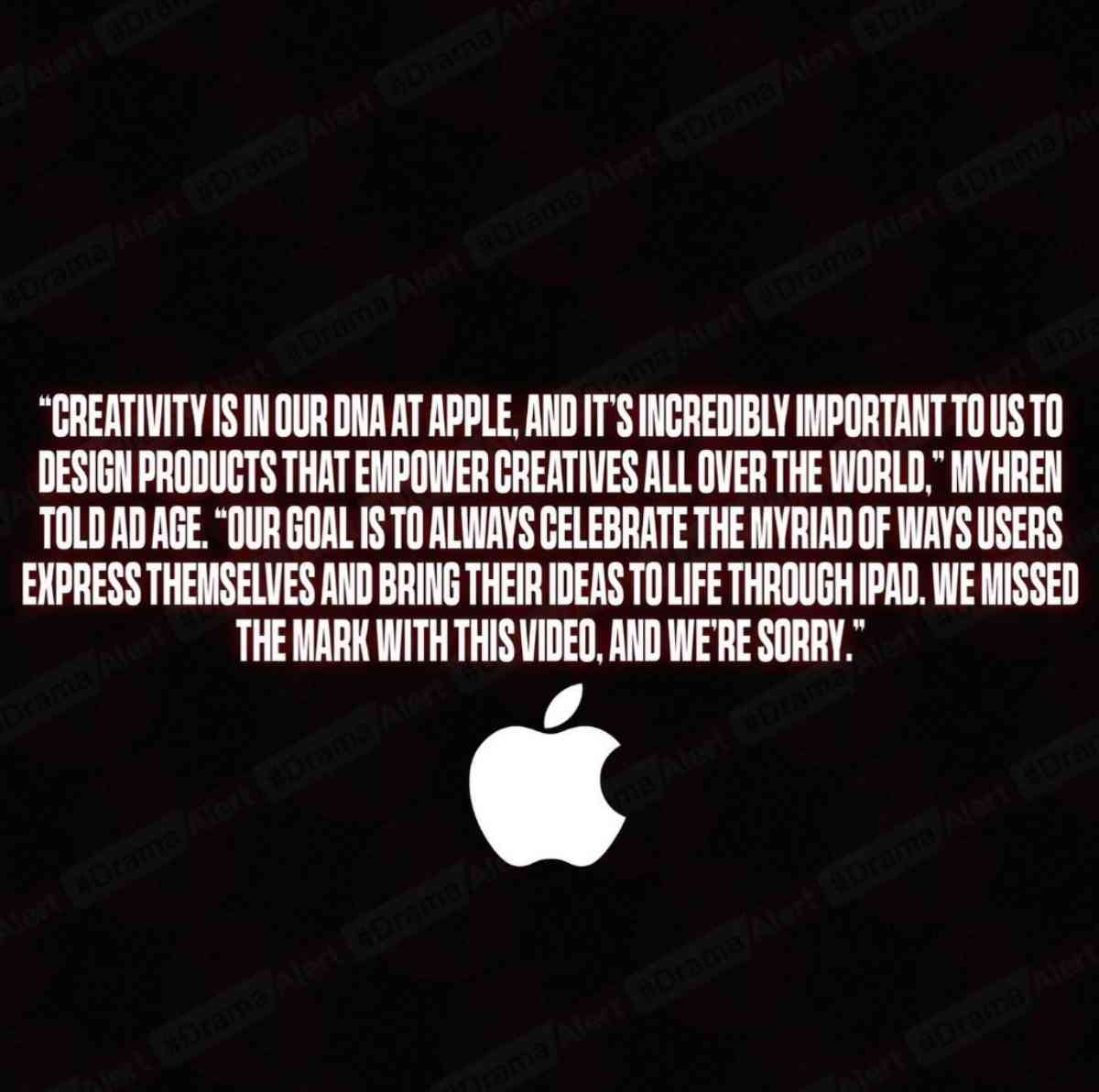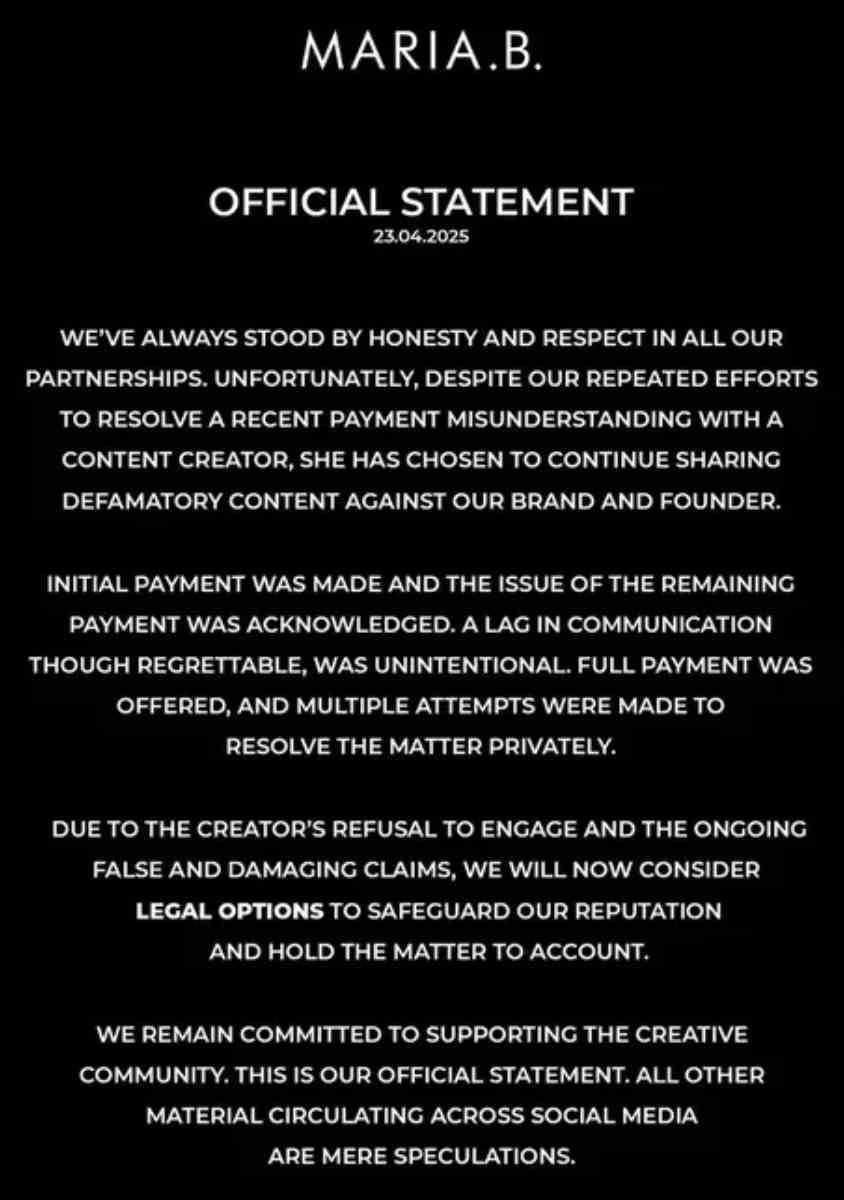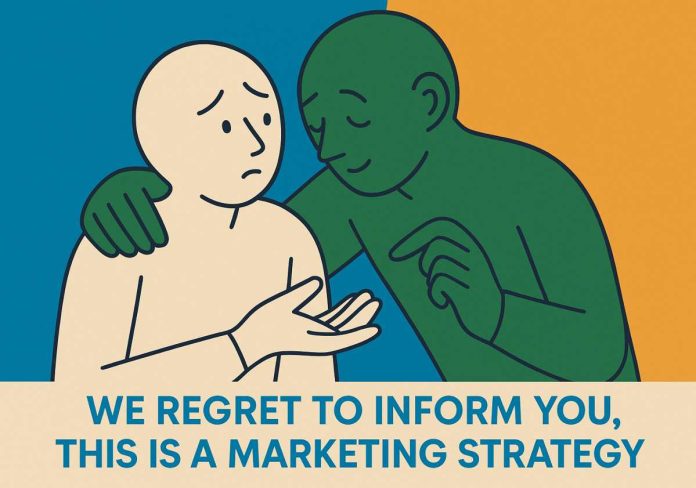Imagine you’re back in school. A kid spills juice on someone else’s science project. Was it on purpose? Was it a mistake? Complete chaos. But instead of hiding, they grab the mic at assembly, shed a dramatic tear, wear their best outfit, and almost beg for forgiveness. They go from a bully to a crowd favourite. Because they didn’t just apologise, they performed it.
Swap that kid for a brand, Apple or Adidas, or even Maria B, and you’ll understand the marketing strategy of the day: the stylised, camera-ready, perfectly worded apology, handed to them by the image control department.
In an era of constant online scrutiny and social media backlash, brands and celebrities have discovered that saying “We’re sorry” publicly and strategically can become a powerful tool for retention, relatability, and relevance. This phenomenon, also known as “apology-as-PR,” reflects a shift in how companies navigate public relations crises, using apologies not just to express remorse but to reinforce goodwill and consumer trust.
Brands aren’t perfect, they mess up all the time. A tone-deaf ad here, a cultural misstep there, maybe a product defect that customers have bought. But quietly fixing things behind the scenes, settling them under the table doesn’t just cut it anymore.
Apple’s “Crush!” Did Not Crush it
Last year, Apple released an advertisement titled ‘Crush!’ it showed an industrial press destroying creative tools – violins, books, paint – to promote the new iPad Pro. The ad intended to symbolise the iPad’s versatility but was met with backlash by artists and creatives for devaluing traditional artistic mediums.
Apple responded promptly. Tor Myhren, Apple’s Vice President of Marketing Communications, stated: “Creativity is in our DNA at Apple, and it’s incredibly important to us to design products that empower creatives all over the world. Our goal is to always celebrate the myriad of ways users express themselves and bring their ideas to life through the iPad. We missed the mark with this video, and we’re sorry.” The company withdrew the ad from television broadcasts, though it remains on YouTube.
A four-word statement: “We missed the mark.”
Simple. Minimal. Poised. It was posted everywhere, and the backlash softened. Conversations shifted from outrage to “well, at least they owned it, and they acknowledge they’ve made a mistake.” People respected the brand’s commitment to its users. The iPad still sold. Because Apple knows: silence is deadly, but a stylish sorry? That’s marketing gold.

SheaMoisture’s “Hair Hate” Advertisement
SheaMoisture released an advertisement featuring predominantly white women discussing hair challenges in 2017, which barely included Black women. This was received by the consumers as sidelining its core African-American customer base.
The backlash was quick and in full force. SheaMoisture responded candidly on Facebook: “We really f-ed this one up,” said the brand in a raw, honest Facebook post. No corporate jargon, scripted apology, just plain regret. The result was instantaneous. While trust took a temporary hit, many customers admired the candour. And the brand bounced back, and their social media following grew. The apology, in all its vulnerable glory, became a turning point. Sometimes, being publicly flawed makes you more human.

Maria B: A Designer’s Defence
In 2024, Maria B released a Palestine-inspired collection, and the proceeds would then go to Palestinians, quite admirable. Except… one of the designs was allegedly plagiarised from a Turkish artist. And social media took notice, they didn’t sit around doing nothing. People from all over the world began to boycott Maria B. But the designer responded, not defensively, but with an Instagram apology acknowledging the “unintentional oversight.” She issued a public apology, describing the incident as an ‘unintentional oversight’ and took to Instagram to address the accusations. But Butt’s apology took a contentious turn when she criticised her detractors, referring to them as “liberals foaming at the mouth” and accusing them of undermining her charitable intentions. She emphasised that the collection was inspired by symbols of resistance and reiterated that she was not profiting from its sales.
This year, the designer found herself in yet another PR mess, this time with Turkish influencer Türkan Atay. Known for her Urdu vlogs and life in Turkey, Türkan claimed Maria B’s team hired her to coordinate a brand shoot in Turkey, promising payment per outfit to cover production costs. She delivered the shoot and everything that comes with it. But the brand, she said, ghosted her halfway through. Türkan posted screenshots, voice notes, and a full breakdown on Instagram, accusing Maria B of refusing to pay and blocking her husband when he tried to mediate. Maria B responded that all of this was miscommunication managed by a junior PR rep, should she ‘fire her’ or ‘throw her out’ for her measly mistake. An apology or a plea to forget this situation, we don’t know.

Apologies: The New PR Move
Great apology campaigns humanise the brand. Take Volkswagen: one ad focused on a passionate car designer, determined to make things right. It reminded us that scandals affect everyone, not just the guilty parties. When brands show the humans behind the headlines, we’re more likely to forgive. After all, people connect with people.
In recent years, we’ve been flooded with apologies. Facebook promises to protect your privacy. Wells Fargo says winning back your trust is its top priority. Uber insists one of its core values is doing the right thing. All heartfelt on the surface, but after a while, they start to blend together. Wharton professor Americus Reed warns that this “sorry saturation” can backfire. Sometimes, dragging a scandal back into the spotlight with a high-budget mea culpa just reminds everyone what went wrong in the first place.

